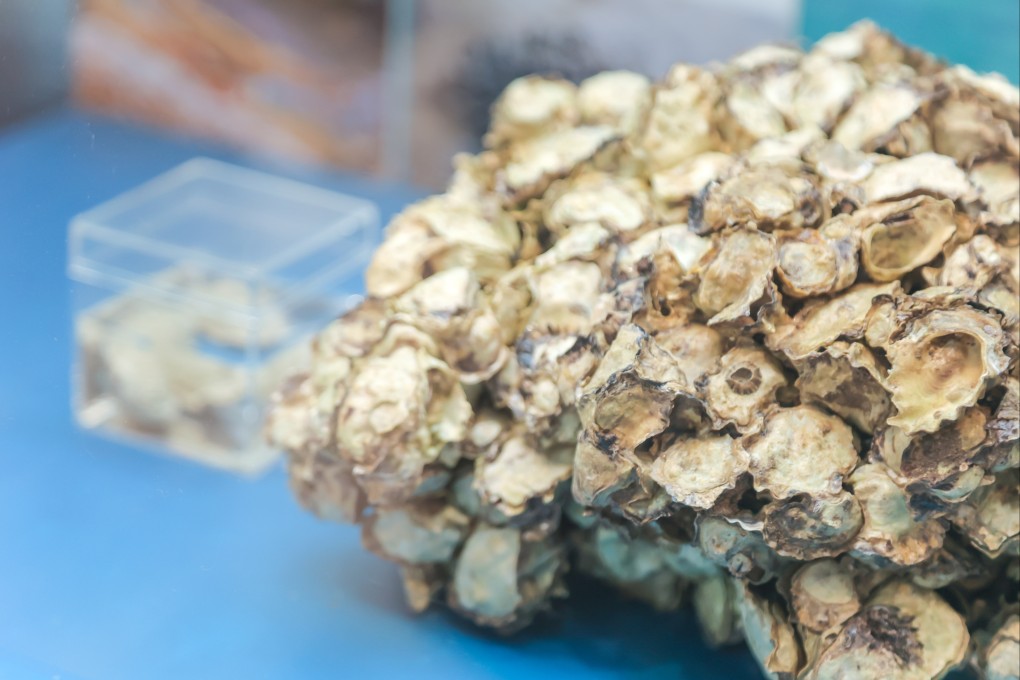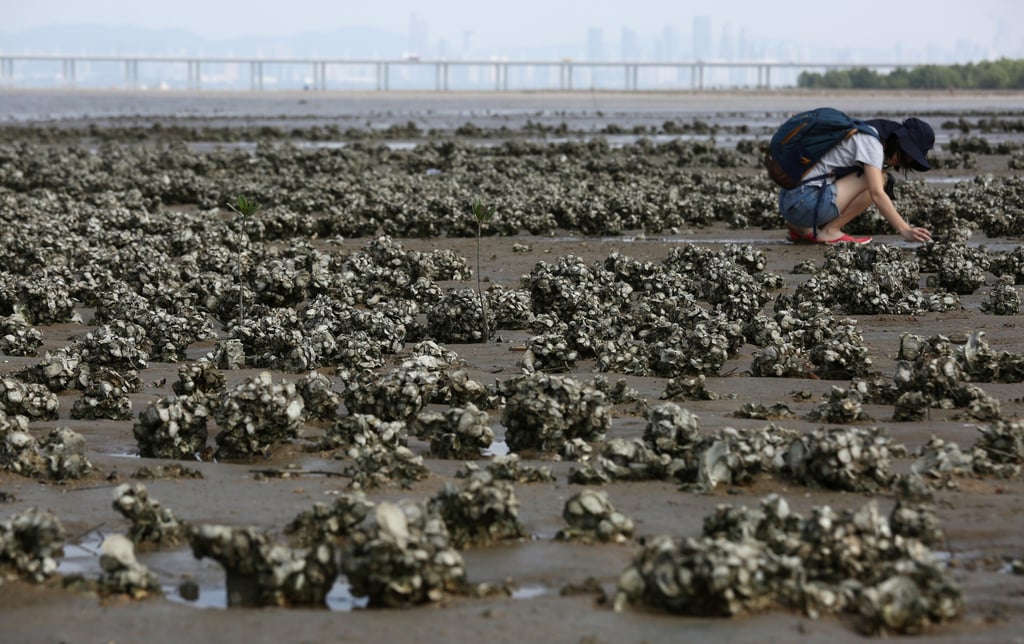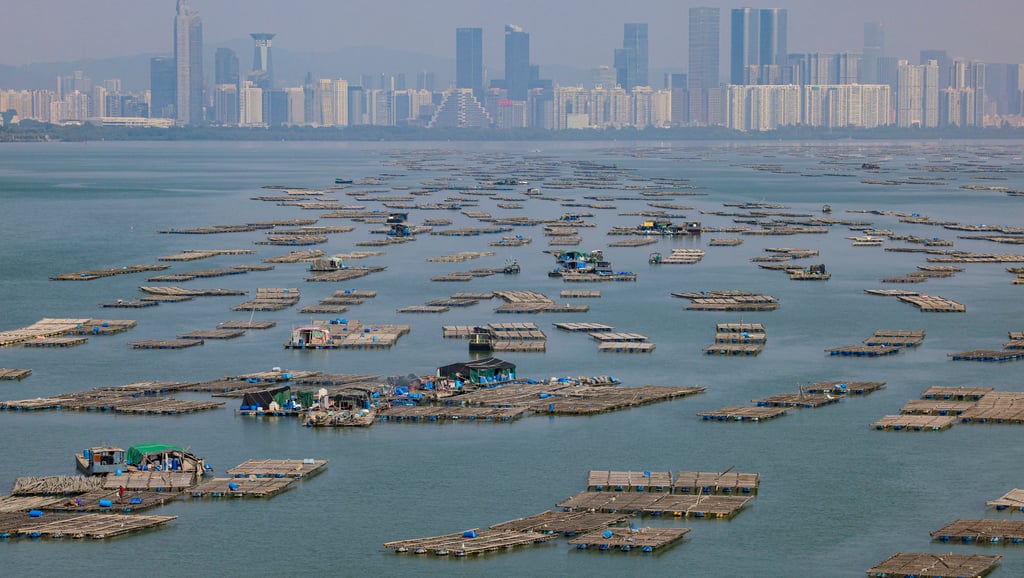Advertisement
Why are oysters so important? Exhibition explores their ecological, cultural and historical significance in Hong Kong and the Pearl River Delta
- Oysters play a vital water-cleaning role in marine ecosystems, but oyster farms are being affected by climate change and pollution-induced toxic algae blooms
- The Nature Conservancy, in collaboration with the Hong Kong Maritime Museum, is hosting an exhibition to raise awareness about oysters and oyster reefs
Reading Time:2 minutes
Why you can trust SCMP
0

Apart from ordering them at a restaurant, most people wouldn’t give oysters a second thought. But they are more than just a summer starter.
Oysters play a vital water-cleaning role, having the ability to filter high levels of nitrogen that lead to toxic algae blooms. And they’re good at their job: the species in Hong Kong – Magallana hongkongensis – is capable of filtering up to 30 litres of water an hour.
But like many industries, oyster farms are being affected by warming and acidifying marine waters caused by climate change and pollution-induced toxic algae blooms.
And it’s not just Hong Kong. An estimated 85 per cent of oyster reefs have been lost worldwide, making them one of the planet’s most endangered marine habitats.


To raise awareness about oysters, The Nature Conservancy (TNC), in collaboration with the Hong Kong Maritime Museum, is hosting an exhibition titled “The Oyster Odyssey – Restoring Hong Kong’s Lost Treasure”.
Advertisement
